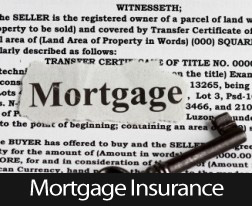 The COVID-19 pandemic has taken the world by storm. Millions of people all over the world have been infected and businesses have ground to a halt. During this time, it is important for everyone to take a breath, pause, and look at their insurance policies.
The COVID-19 pandemic has taken the world by storm. Millions of people all over the world have been infected and businesses have ground to a halt. During this time, it is important for everyone to take a breath, pause, and look at their insurance policies.
The reality is that the economic crisis is following in the footsteps of the obvious public health emergency. In order for everyone to hold their finances together, it is important to explore all of the options. This includes looking at insurance policies.
Business Interruption Insurance
One of the first policies or riders that everyone has to look for is called business interruption insurance. This is an insurance policy that might be able to assist companies that are struggling with reduced revenue streams due to interruptions in their normal business operations.
For example, if a business is forced to shut down due to the COVID-19 pandemic, this might fall under the category of business interruption insurance. This can help businesses bridge the gap until they can reopen again.
Civil Authority Clauses
This is a feature that is common in property insurance. This insurance claim can be triggered if government policies restrict the entry of people onto the property of the policyholder. If this restriction leads to lost income, then the insurance policy can be triggered. Everyone should check their policies to see if this clause is included as this can provide funds to businesses that might not otherwise be able to stay open.
Defensive Policies And Riders
Finally, defensive policies are often put in place to help companies defend against lawsuits that might be filed against the company related to injuries and illnesses. Without a doubt, there will be a slew of lawsuits filed related to the COVID-19 pandemic. Defensive policies can help companies cover legal fees, settlement costs, and other expenses related to these lawsuits.
Defensive policies are also called D&O insurance (Directors and Officers Insurance) as well as General Liability Insurance. It is important to read the insurance policy carefully to see if these policies are included.
Businesses need to explore every available option when it comes to reopening. These insurance policies can help them survive the COVID-19 pandemic.

 Are you thinking about using mortgage financing to buy a new home? If so, you’ve likely heard about mortgage insurance policies requirements and you may be wondering how they will affect you. In today’s blog post we’ll explore mortgage insurance and explain the difference between conventional, FHA, VA and USDA mortgage insurance policies.
Are you thinking about using mortgage financing to buy a new home? If so, you’ve likely heard about mortgage insurance policies requirements and you may be wondering how they will affect you. In today’s blog post we’ll explore mortgage insurance and explain the difference between conventional, FHA, VA and USDA mortgage insurance policies. When it comes to putting a down payment on a house, most lenders are going to ask for 20 percent; however, some lenders will be willing to accept a smaller down payment in exchange for something else.
When it comes to putting a down payment on a house, most lenders are going to ask for 20 percent; however, some lenders will be willing to accept a smaller down payment in exchange for something else. Are you in the market for a new home? If you are considering a mortgage, you may be curious about mortgage insurance, commonly referred to as PMI or MI. Let’s explore the topic of mortgage insurance, including how it works to reduce risk and how it benefits you as the mortgage borrower.
Are you in the market for a new home? If you are considering a mortgage, you may be curious about mortgage insurance, commonly referred to as PMI or MI. Let’s explore the topic of mortgage insurance, including how it works to reduce risk and how it benefits you as the mortgage borrower. It’s easy to get Private Mortgage Insurance (PMI) confused with homeowners’ insurance, but PMI is an entirely different thing that may or may not be necessary when it comes to your home purchase. If you’re going to be investing in a home in the near future and are wondering what PMI may mean for you, here are some things to consider regarding this type of insurance.
It’s easy to get Private Mortgage Insurance (PMI) confused with homeowners’ insurance, but PMI is an entirely different thing that may or may not be necessary when it comes to your home purchase. If you’re going to be investing in a home in the near future and are wondering what PMI may mean for you, here are some things to consider regarding this type of insurance.